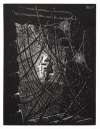Kathe
Kollwitz
German printmaker and sculptor Käthe Kollwitz captured the human condition with emotive power. Her works, steeped in social commentary, remain profound and in-demand. If you’re seeking Käthe Kollwitz original prints and editions for sale, or wish to sell, request a complimentary valuation and browse our network’s most in-demand works.
Join our mailing list to be the first to hear about available Kathe Kollwitz works in our network.
Biography
Born in 1867 in Königsberg, East Prussia (now Kaliningrad, Russia), Käthe Schmidt grew up in an environment that fostered her artistic talents. Her father, recognising her potential, supported her education in art despite the societal norms of the time. Kollwitz's early education at the Women's Art School in Berlin and later at the Munich Women's Art School was instrumental in shaping her artistic sensibilities. She married Karl Kollwitz and moved to Berlin, where she would spend much of her life.
Kollwitz's artistic development was marked by her unwavering focus on the plights of the working class and those affected by poverty and war. Her first major cycle of works, March Of The Weavers, was inspired by Gerhart Hauptmann's play and depicted the brutal realities of the weavers' revolt. This was followed by another powerful series, Peasants’ War, which further established her commitment to portraying social injustice.
Her work is characterised by its emotional intensity and her mastery of graphic techniques, including etching, lithography, woodcuts, and sculpture. Kollwitz's art was not only a reflection of the world she lived in but also served as a form of protest against the socio-political issues of her time, such as the effects of poverty, hunger, and war.
Kollwitz's personal life was marked by tragedy when her youngest son, Peter, was killed in World War I. This loss significantly impacted her work, leading to the creation of some of her most acclaimed pieces, including The Grieving Parents, a memorial for her son and the other soldiers who died in the war.
Despite facing censorship and adversity during the Nazi regime, Kollwitz continued to produce art that spoke to the resilience and suffering of the human spirit. Her legacy is one of compassion and resistance, and her influence can be seen in the works of subsequent generations of artists who tackle themes of social justice.
Her contributions to the art world were significant, with major exhibitions showcasing her work across Germany and internationally. Kollwitz's art remains a powerful testament to her belief in the role of the artist in society – to bear witness and to evoke change. Her impassioned work continues to resonate with audiences worldwide, and her legacy as an artist and advocate for social change endures, cementing her position as a pivotal figure in the canon of modern art.
Sell Your Art
with Us
with Us
Join Our Network of Collectors. Buy, Sell and Track Demand







